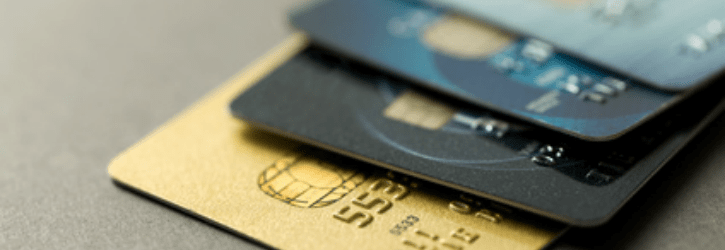Welcome To The Data Leak Lawyers Blog
We focus on the latest news surrounding data breaches, leaks and hacks plus daily internet security articles.
We focus on the latest news surrounding data breaches, leaks and hacks plus daily internet security articles.

Breaking news today: 9 million customers are thought to be affected by the significant easyJet data breach, with over 2,000 people’s credit card details stolen.
Personal information and travel data are understood to have been exposed in a “highly sophisticated” cyberattack, and victims may be at an immediate risk of fraud and scams. As experts in the niche and complex area of law of data protection negligence, we know the true extent of how dangerous information can be in the hands of criminals.
The airline could face a significant number of compensation claims, and we’re investigating the issues now. We have been contacted for media comment and have issued advice to the press in relation to fines and legal actions.

Deleting information can be done by request or in-line with how data processors will store and use information. But what about intentionally erasing information that shouldn’t have been erased?
Although we’d like to think that this kind of thing wouldn’t happen, it does. Sometimes, organisations or the people working for them may opt to try and avoid the fallout of a problem by erasing information; i.e. ‘getting rid of the evidence’. This is wrong, and victims should know their rights when something like this happens.
As a leading firm of consumer action and data breach compensation lawyers, we represent victims for this kind of case. Here’s how we may be able to help you.

If the ICO take no further action, does this mean that you cannot make a claim? What if no fine is issued, can you still claim then? What are your rights?
The short answer is that no further action from the ICO (Information Commissioner’s Office) doesn’t mean no ability to make a claim for you. Claims and fines are separate matters, and you could still be eligible for compensation either way.
As a leading firm of consumer action and data breach compensation experts, here’s the insight when it comes to ICO matters and your ability to receive compensation.

If you’re one of the 900,000 victims that has been affected by Virgin Media data breach, here’s what you need to do to secure your right to make a claim for compensation on a No Win, No Fee basis with us.
A compensation action has already been established for people to join. As a victim, you could be entitled to claim for the distress caused by the loss of control of your personal information. You may also be entitled to recover damages for any losses and expenses that you may incur too.
As a leading firm of consumer action and data breach compensation specialists, we’ve launched our action for justice. All you need to do is sign-up for a legal case.

We’ve been contacted for help and taken formal instructions forward following customers being notified of the recent Robert Dyas data breach.
We’ve agreed to act for victims affected by the incident on a No Win, No Fee basis. The incident appears to be similar to a number of the group actions we’re already involved with. This includes the British Airways data breach action, which is the first GDPR Group Litigation Order (GLO) in England and Wales; an action we’re on the Steering Committee for. If you’ve received notification that you’re affected by this incident, you can speak to our team now for free, no-obligation advice.
As a leading firm of consumer action and data breach compensation experts, we’re here to help you.

When all is said and done, the true cost of a data breach is worth avoiding for organisations as much as it should be recognised that they have a duty to protect people’s information.
It’s important that organisations are punished when they break the law, and it’s important that victims can access the justice that they deserve. That’s why we, as a leading consumer action and data breach compensation law firm, specialise in this complex and niche area of law. People have the right to seek justice and we can represent you on a No Win, No Fee basis for a legal case.
When you look at just how much it can cost to organisations financially, as well as to victims emotionally, it’s clear to see why avoiding a data breach is important.

The Carphone Warehouse data breach of 5th August 2015 was a significant event with some 2.4 million customers affected by a cyberattack.
We are taking cases forward for this breach and have been since news of the incident broke back in 2015. It’s not the first incident of its kind, but as we approach the three-year anniversary, there are some important warnings we must issue for those who have yet to start their legal case.
Here’s some vital advice about whether you can make a claim for compensation with us on a No Win, No Fee basis, as well as warnings about deadlines involved. As a leading consumer action and data breach compensation law firm, our experience speaks for itself when it comes to this complex and niche area of law.

GDPR fines and compensation claims for victims are two separate things with separate avenues for recovering money in either case.
Although the GDPR means that fines can now hit the millions, none of that money is designed to be for the victims. Money recovered from financial penalties will normally end up in the treasury with other general government funds like taxes and fines. It can then be used for government spending.
When it comes to justice for victims, you can speak to us about a separate legal action where you can bring a claim for data breach compensation.

The Dixons Carphone data breach fine has been formally issued by the Information Commissioner’s Office (ICO) for the maximum amount possible under the previous rules.
The cyberattack took place between July 2017 and April 2018, meaning the Data Protection Act 1998 applies as opposed to the GDPR that came into force just a month later. As such, the maximum fine that the retailer could face was £500,000.00, which is what the ICO has issued. Had the attack have continued into the GDPR era, they could have faced fines in the hundreds of millions of pounds mark.
We’ve been representing victims of this data breach for some time now as expert data protection compensation lawyers with a wealth of experience in large consumer actions. As we know a great deal about this breach as it’s one of our live actions, we’re not surprised by the findings and the maximum fine being issued.

It’s official: the first GDPR fine in the UK has been issued to Doorstep Dispensaree for data protection breaches that spanned across a two-year period.
This one involves medical data, which is some of the most personal and sensitive forms of data that there is. Medical data breach compensation claims account for a large proportion of the legal cases that we take forward because of how common they can be, and because of the impact on victims. The impact is often severe because this is the kind of information that we do not want to be misused or exposed.
The breach period, in this case, is between June 2016 and June 2018, which means that it just falls within the GDPR start period from May 2018. The Information Commissioner’s Office (ICO) was reportedly alerted to the breach by the Medicines and Healthcare Products Regulatory Agency (MHRA) who were conducting unrelated enquiries.
Fill out our quick call back form below and we'll contact you when you're ready to talk to us.